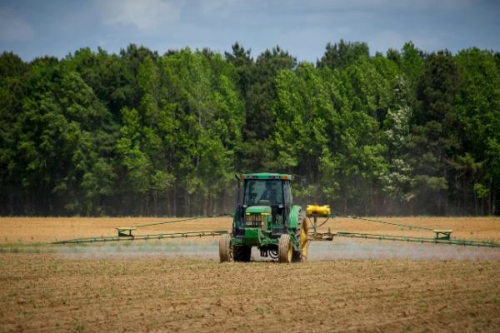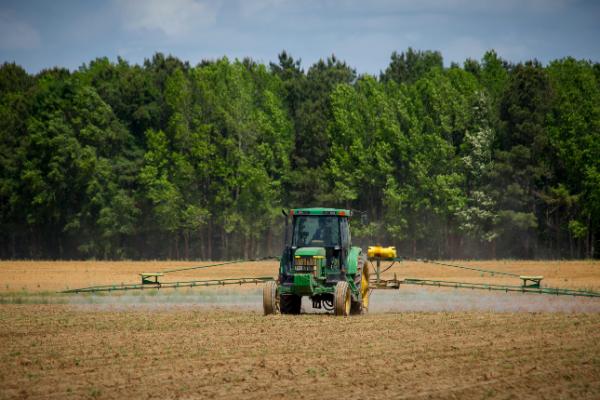Research team and collaborators
UCD research team
- Dr Alison Connolly, Assistant Professor and Programme Director of the UCD Higher Diploma of the Safety, Health and Well-Being at Work and Principal Investigator and project lead for the exposure science research team;
- Dr Richa Singh, a postdoctoral researcher conducting the feasibility study for developing a national human biomonitoring programme for Ireland;
- Dr Sewon Lee, postdoctoral researcher evaluating gardeners' exposures to neonicotinoid insecticides using human biomonitoring strategies;
- Darragh Doherty, PhD candidate, researching exposures among users of flea treatments containing neonicotinoid insecticides using human biomonitoring strategies.
Collaborators
- Dr Holger Koch, Division Head of Laboratory for Human Biomonitoring in the Institute of Prevention and Occupational Medicine in Bochum, Germany, and Honorary Professor at The University of Queensland, Australia (QAEHS). Dr Koch is a world-renowned scientist specialising in human biomonitoring, specifically analytical method development and metabolism studies. Dr Koch conducts laboratory analyses for Dr Connolly’s recent projects and mentored her during her Marie Curie postdoctoral fellowship.
- Dr Marie Coggins, Senior Lecturer and Chartered Fellow of the Faculty of Occupational Hygiene at the British Occupational Hygiene Society, University of Galway, Dr Connolly’s mentor during her PhD and throughout her early career postdoctoral studies.
- Dr Marike Kolossa-Gehring, a world leader in HBM and André Conrad, an expert in human biomonitoring of glyphosate exposures at the German Environment Agency are expert advisors across Dr Connolly’s studies.
- Dr Karen Galea, Dr Ioannis Basinas and Dr Kate Jones were external collaborators during Dr Connolly’s PhD studies and contributed to study design, chemical analysis and statistical analysis and interpretation.
Funding
Irish Research Council Marie Skłodowska-Curie Actions [2019-2021]
- The research fellowship, IMAGE: Irelands bioMonitoring Assessment of Glyphosate Exposure, was funded by the Irish Research Council Marie Skłodowska-Curie Actions Programme entitled CAROLINE – Collaborative Research Fellowships for a Responsive and Innovative Europe (grant agreement No 713279). CAROLINE funds experienced researchers to conduct research relevant to the themes of the United Nations 2030 sustainability goals, where a key feature of the programme is the collaboration between the academic sector and non-governmental organisations. The IMAGE's overarching aim was to assess environmental exposures to glyphosate and its main metabolite, aminomethylphosphonic acid, in Irish families (parents and children) using a newly developed human biomonitoring strategy.
SFI Pathway Principal Investigator and PhD supervisor [2022-2026]
- This SFI four-year project involves the management of the EIRE nEonicotinoid Insecticide exposuREs study, which aims to measure neonicotinoid insecticides (NNIs) exposures among gardeners working with these products, their families, bystanders and the general population.
EPA-funded project [2023-2025]
- This study was awarded under the Delivering a Healthy Environment 2022 Call for the Human Biomonitoring for Ireland (HBM4IRE) project. The project’s overall aim is to evaluate the criteria required to develop a national Human Biomonitoring surveillance programme for Ireland to contribute to monitoring environmental chemical exposures.
EPA-funded project [2025-2028]
- The Human Biomonitoring for Ireland (HBM4IE) environmental chemical exposure study is funded under the theme Delivering a Healthy Environment: Towards Zero Pollution. The project's overall aim is to conduct human biomonitoring (HBM) campaigns to collect HBM samples to evaluate environmental chemical exposure for ten specific priority chemical groups, which will be conducted in collaboration with the (opens in a new window)PARC initiative.

 Many EU initiatives, such as the European Green Deal and the EU Chemicals Strategy for Sustainability, have identified the need to develop a framework of indicators to monitor the drivers and impacts of chemical pollution and to measure the effectiveness of chemical legislation.
Many EU initiatives, such as the European Green Deal and the EU Chemicals Strategy for Sustainability, have identified the need to develop a framework of indicators to monitor the drivers and impacts of chemical pollution and to measure the effectiveness of chemical legislation.-600x800.jpg) These human biomonitoring projects have had a positive impact on scientific, educational, policy-oriented, societal and international engagement. The studies contribute to understanding environmental risks due to chemical exposures, which will benefit the population's health by identifying appropriate policy responses and informing future national and EU chemical policy.
These human biomonitoring projects have had a positive impact on scientific, educational, policy-oriented, societal and international engagement. The studies contribute to understanding environmental risks due to chemical exposures, which will benefit the population's health by identifying appropriate policy responses and informing future national and EU chemical policy.